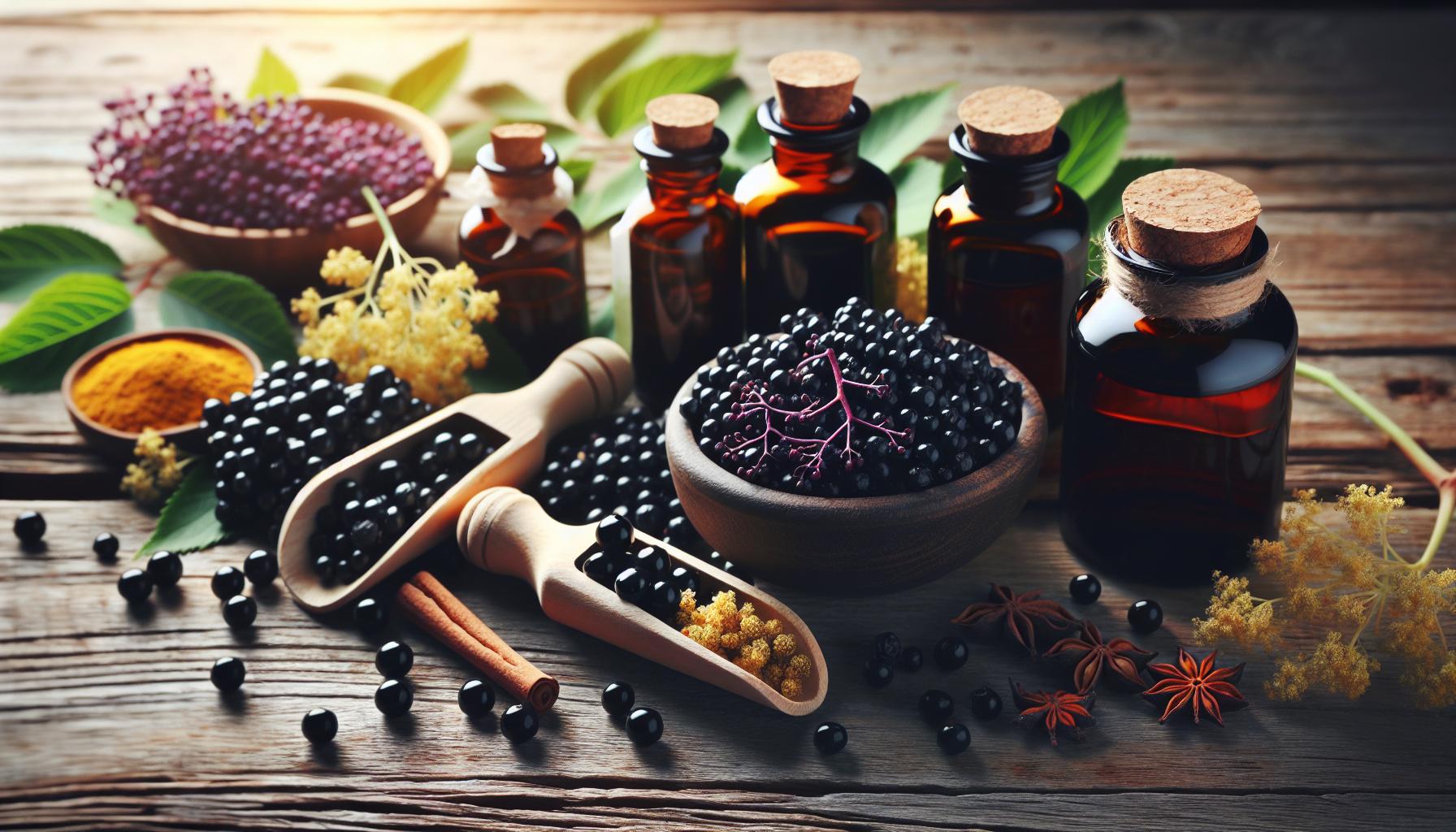
Will 1 elderberry make you sick?
Elderberry Risks Opinions vary on whether elderberry is helpful, but most doctors believe it’s safe to have in small doses. But unripe or uncooked berries or flowers from the plant can cause nausea, vomiting, and diarrhea. Larger amounts can cause even more serious poisoning.
Introduction
From foraging forests to fine dining, elderberries have been part of cultural culinary practices for centuries. But the question puzzling many is – how poisonous are elderberries? The simple answer is: while raw elderberries can be toxic due to the presence of cyanide-forming glycosides, when properly prepared, they lose their harmful properties and offer an array of health benefits. This comprehensive guide will help you understand everything about this tiny purple bundle of nutrition, from the potential dangers to ultimate benefits, ways to make them safe, and their importance in different culinary worlds. So, prune your concerns and let’s explore the exciting world of elderberries!
The Poisonous Perception of Elderberries
Elderberries do possess a certain degree of poison, a rather paradoxical situation for a fruit that is also famed for its nourishing properties. In their raw state, they boast a high quantity of cyanide-inducing glycosides. They can coax the body into producing cyanide—a substance high on the list of dangerous chemicals.
The Risks:
Consuming raw elderberries can result in severe sickness characterized by nausea, vomiting, abdominal cramps, and diarrhea. Extreme cases may involve difficulty in breathing and even foster a lethal outcome.
Transit from Toxicity to Tonic
Elderberries are like a phoenix rising from the ashes, transforming from poisonous to profoundly beneficial when cooked appropriately. Applying heat banishes the sinister cyanide-inducing glycosides and metamorphoses elderberries into a powerhouse of vitamins and antioxidants.
The Revelation:
Cooked elderberries spring surprises in the form of fortified immune systems and reduced inflammation. Not to mention, they add a delightful flavor profile to your dishes. Talk about culinary alchemy!
Unveiling Useable Elderberries
Rinsing out the raw risk, elderberries are often simmered into syrup, steeped into tea, or baked into pies and pastries. These cooked concoctions not only tame the toxicity but also tickle your taste buds.
The Path to Savory Safety:
From desserts to drinks, elderberries can make a tempting appearance in numerous recipes. But remember, the heat is the hero in this story, transforming the dark side of elderberries into a delightfully delicious denouement.
The Bountiful Benefits Of Elderberries
With the poisonous concern pacified, the spotlight swiftly shifts to the multiple health benefits these cooked berries bring about. They are a storehouse of dietary fiber, vitamin A, Vitamin C, and a multitude of antioxidants, making them a nutritious addition to your diet.
The Health Harvest:
Elderberries, once carefully cooked, can help boost the immune system, improve heart health, tackle inflammation, and possibly ward off colds and flu symptoms. It’s a tiny berry with a big impact!
Conclusion
Elderbushes have been gracing our world since time immemorial, serving both as a warning and a wonder. The toxicity of elderberries must not deter you from enjoying their dietary delights and health benefits. Cooking is key to their transformation from potentially harmful to completely helpful. So, heat those berries and enjoy a jam-packed dose of nutrition in each bite!
Frequently Asked Questions
1. Can you eat elderberries raw?
It’s best to avoid eating raw elderberries as they contain cyanide-inducing chemicals which can cause ill effects.
2. How to cook elderberries to make them safe?
Elderberries should be properly cooked, usually boiled or baked, to remove any harmful toxins.
3. What are the health benefits of elderberries?
Cooked elderberries are full of vitamins and antioxidants. They can provide immune support, improve heart health, and help fight inflammation.
4. Can elderberries help with colds and flu?
Yes, elderberries have been traditionally used for their potential to combat cold and flu symptoms, though this should not replace professional medical advice.
5. Can I use elderberry syrup for cooking?
Absolutely! Elderberry syrup can add a unique flavor and health boost to many dishes, just remember it should always be cooked before consumption.


